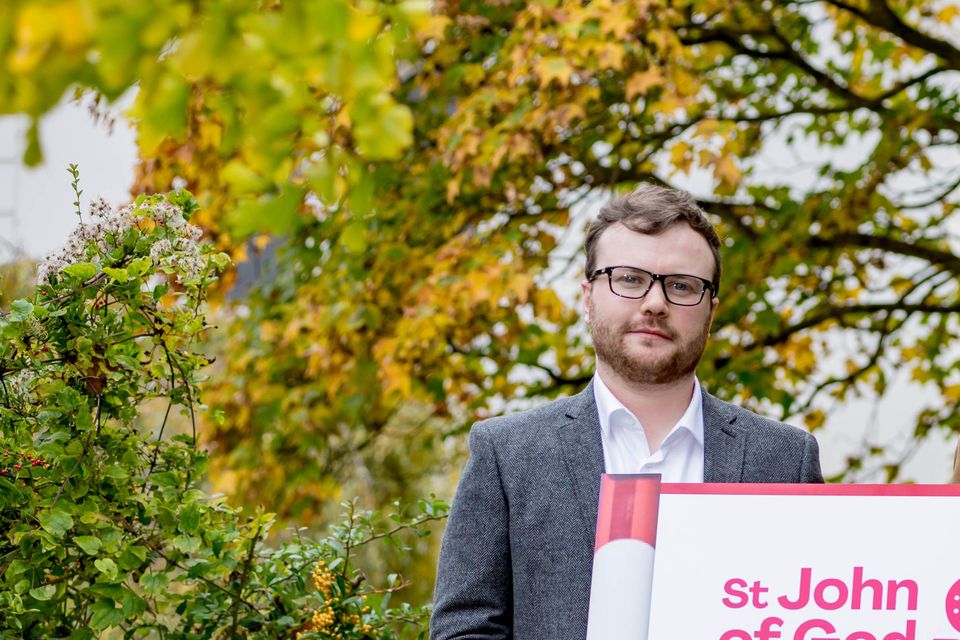Health
New Research Centre Launches in Dublin to Tackle Psychosis

A new initiative aimed at addressing psychosis has been launched in Dublin with the establishment of the St John of God Psychosis Research Centre. Conor Gavin, who has personal experience with psychosis, has been appointed as the centre’s Co-ordinator. His role will involve leveraging his lived experience to contribute to research and support those affected by this mental health issue.
Psychosis is a condition characterized by a loss of contact with reality, which may include experiencing hallucinations or delusions, and can lead to disorganized thinking. In Ireland, it affects approximately 45,000 people at any given time. Gavin expressed his enthusiasm for the role, stating, “As a person with my own lived experience of psychosis, I am thrilled to be a part of this new initiative in St John of God. It’s inspiring to see the work that has been done over the last number of decades to strive for better outcomes in this area of mental health.”
Goals and Collaborations
The new centre aims to coordinate research activities across the St John of God group and strengthen collaborations with leading specialists in the field. The research outcomes will directly inform the treatment of psychosis within all relevant services offered by St John of God and will support policy development and advocacy efforts to enhance mental health services.
Dr Lesley O’Hara, CEO of St John of God’s Research, highlighted the organization’s commitment to advancing research in this area. “We are incredibly proud to support the establishment of the St John of God Psychosis Research Centre. Our organization has a long-standing reputation as leaders in this field of research, and we welcome the opportunity to extend our expertise across the life span and with disability and minority groups,” she said.
The centre is designed to prioritize the perspectives of individuals experiencing psychosis and their families. This approach aims to ensure that the research conducted is reflective of their needs and concerns, providing them with a platform to influence its strategic direction.
Building on Clinical Research
The St John of God Psychosis Research Centre builds on a robust legacy of clinical research in the area of psychosis. Prof Mary Clarke, a Consultant Psychiatrist at the St John of God DETECT Service, emphasized the importance of collaboration among clinicians, researchers, and individuals with lived experience. “We are excited by the opportunity to bring diverse areas of expertise together and to learn from one another, fostering a culture of shared purpose, curiosity, and respect in pursuit of better outcomes for individuals with psychosis,” she stated.
In addition to its research activities, the centre will focus on providing training aimed at developing future leaders in the field. This initiative is part of a broader commitment to enhancing the entire health service development cycle for psychosis, from research and policy development to implementation and evaluation.
As the St John of God Psychosis Research Centre embarks on this significant journey, it aims to make a meaningful impact on the lives of individuals affected by psychosis and contribute to the advancement of mental health care in Ireland and beyond.
-

 Top Stories3 months ago
Top Stories3 months agoTributes Surge for 9-Year-Old Leon Briody After Cancer Battle
-

 Entertainment4 months ago
Entertainment4 months agoAimee Osbourne Joins Family for Emotional Tribute to Ozzy
-

 Politics4 months ago
Politics4 months agoDanny Healy-Rae Considers Complaint After Altercation with Garda
-

 Top Stories4 months ago
Top Stories4 months agoIreland Enjoys Summer Heat as Hurricane Erin Approaches Atlantic
-

 World5 months ago
World5 months agoHawaii Commemorates 80 Years Since Hiroshima Bombing with Ceremony
-

 Top Stories3 months ago
Top Stories3 months agoNewcastle West Woman Patricia Foley Found Safe After Urgent Search
-

 Top Stories5 months ago
Top Stories5 months agoFianna Fáil TDs Urgently Consider Maire Geoghegan-Quinn for Presidency
-

 World5 months ago
World5 months agoCouple Convicted of Murdering Two-Year-Old Grandson in Wales
-

 World5 months ago
World5 months agoGaza Aid Distribution Tragedy: 20 Killed Amid Ongoing Violence
-

 World5 months ago
World5 months agoAristocrat Constance Marten and Partner Convicted of Infant Murder
-

 Top Stories4 months ago
Top Stories4 months agoClimbing Errigal: A Must-Do Summer Adventure in Donegal
-

 Top Stories4 months ago
Top Stories4 months agoHike Donegal’s Errigal Mountain NOW for Unforgettable Summer Views








